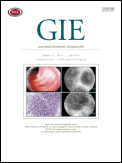Pediatrics 2005;115:1341-1346.
Celiac.com Sponsor (A12):
Celiac.com 05/31/2005 – According to Canadian researchers, the use of Tissue Transglutaminase Antibody (tTG) Screening may soon replace the use of the small bowel biopsy to diagnose celiac disease in children. The researchers reviewed the charts of 103 children who were screened for celiac disease using both small bowel biopsy and tTG. Fifty-eight of the children were found to have positive biopsy results, and out of these, 48 had very high tTG levels (over 100 U), 7 had middle tTG levels (20-100 U), and 3 had low levels (less than 20 U). Out of the 49 children with the highest tTG levels, all but one of them had a positive biopsy result. There were 3 biopsy-positive children who had low tTG levels, two who were found to be IgA negative, and one who had a duodenal ulcer.
According to the researchers, using tTG values of greater than 100 U and less than 20 U, and knowing the patients IgA status, tTG testing was "98% sensitive and 97% specific in detecting celiac disease." The researchers also point out that the cost of diagnosis could be cut by 30% by utilizing tTG screening. The researchers conclude that children with high tTG titers can proceed straight to a gluten-free diet--if they respond well then their diagnosis is confirmed—if not they can proceed to a biopsy.
Although the authors dont address this issue specifically, this method would likely lead to an increase in the diagnosis rate of celiac disease, as many people are unwilling to undergo a biopsy--or have their children undergo one.






Recommended Comments